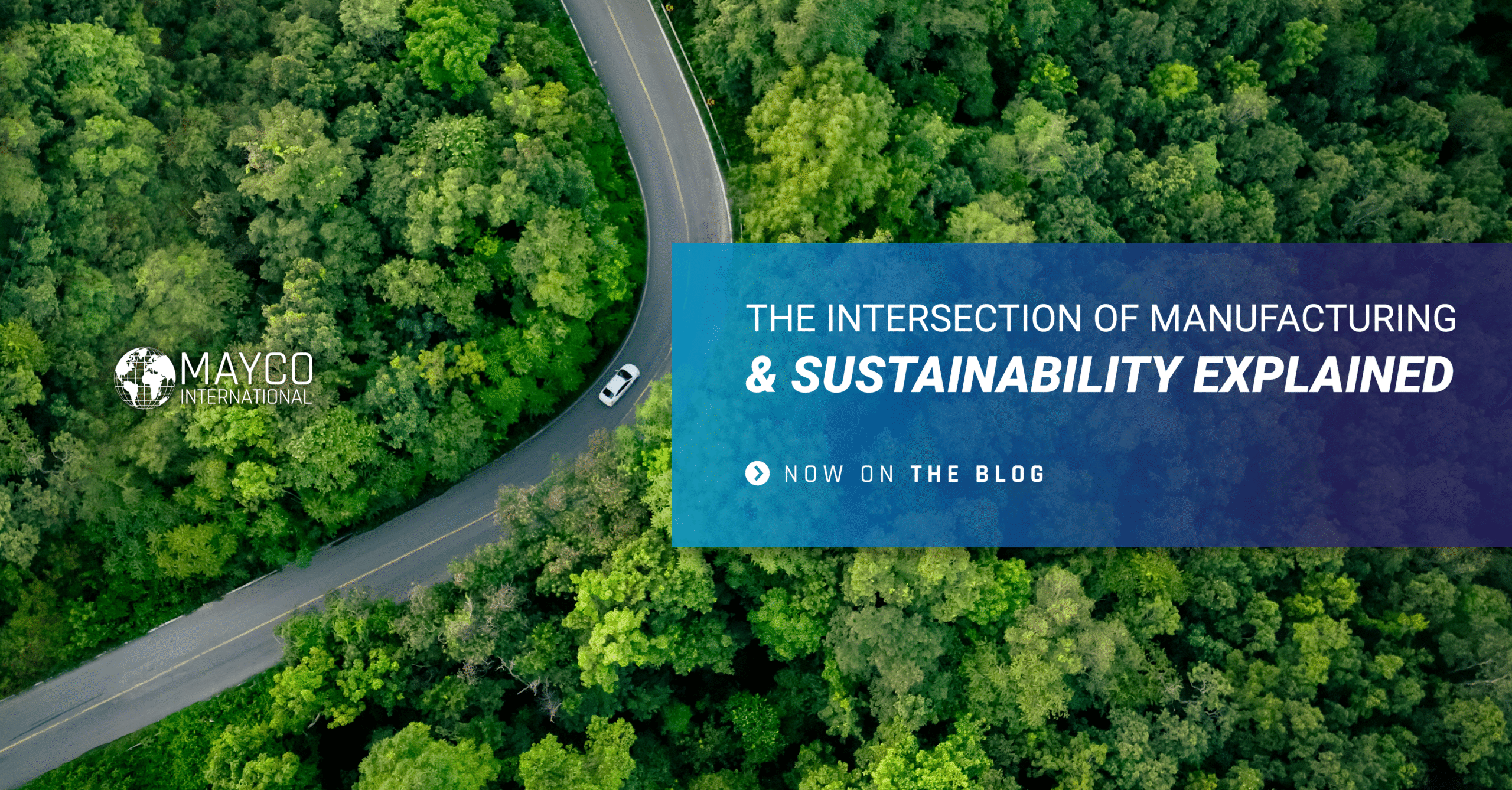Oct 21/25
The Intersection of Manufacturing and Sustainability Explained

As industries work to balance economic growth with environmental responsibility, eco-friendly manufacturing has become a true necessity. It can save money, please customers, and lead to better growth.
In 2022, as many as 80% of companies claimed to have environmental sustainability goals.
Are you interested in the intersection of manufacturing and sustainability? Read on to learn how sustainable industry practices and green manufacturing solutions are reshaping the future.
What Does Sustainability Look Like in Manufacturing?
Sustainability in manufacturing is about more than simply reducing waste or cutting costs. It represents a complete shift in how companies approach the following:
- Production
- Design
- Supply chains
Modern manufacturers are beginning to prioritize sustainable industry practices that take the full product life cycle into account.
Mayco International, for example, has embraced this movement by incorporating recycled plastics and bio-based materials into its automotive interior parts. Doing this not only reduces reliance on nonrenewable resources but also helps limit the amount of waste that ends up in landfills. Sustainability in manufacturing also focuses on efficiency, including advanced tooling methods that minimize scrap material.
How Is the Automotive Industry Going Green?
The automotive industry is one of the clearest examples of how eco-friendly manufacturing is reshaping entire sectors. As consumers demand greener vehicles, manufacturers are finding new ways to deliver products that meet these expectations.
One major area of change is the shift toward lightweight materials, which help improve fuel efficiency and lower emissions. By developing advanced polymers and plastics for interior components, companies are reducing vehicle weight without compromising performance.
At the same time, there is a growing emphasis on designing parts with recyclability in mind. Automotive interiors, for instance, are increasingly made from recycled plastics and natural fibers.
Why Are Companies Prioritizing Environmentally Conscious Production?
One driving factor is regulation. Governments around the world are setting higher standards for emissions and energy use.
Another factor is consumer demand. More people than ever are choosing products that align with their values, and sustainability has become a central concern.
Beyond compliance and customer expectations, companies also recognize the financial benefits of sustainable practices. Doing the following often results in lower operating costs over time:
- Reducing energy consumption
- Reusing materials
- Cutting waste
Plus, sustainable production builds resilience by making companies less dependent on volatile raw material markets.
Real-World Examples of Sustainable Industry Practices
In practice, sustainable industry practices take many forms. Automotive interiors made from recycled plastics are a major manufacturing innovation.
Bio-based alternatives such as plant fibers and vegan leather are also becoming more common.
Another important shift is the move toward circular supply chains. The linear approaches do the following to materials:
- Extracted
- Used
- Discarded
Instead, circular models keep resources in use for as long as possible.
It’s Time to Combine Manufacturing and Sustainability
By paying attention to both manufacturing and sustainability, the future of vehicles will be extra bright.
Mayco International boasts a global network and supplies the most reliable and sustainable parts. That’s why the company is a tier 1 automotive supplier in development, validation, tooling, and even manufacturing.
Do you want to work with our award-winning team? If so, don’t wait to reach out to Mayco International for a quote today.

